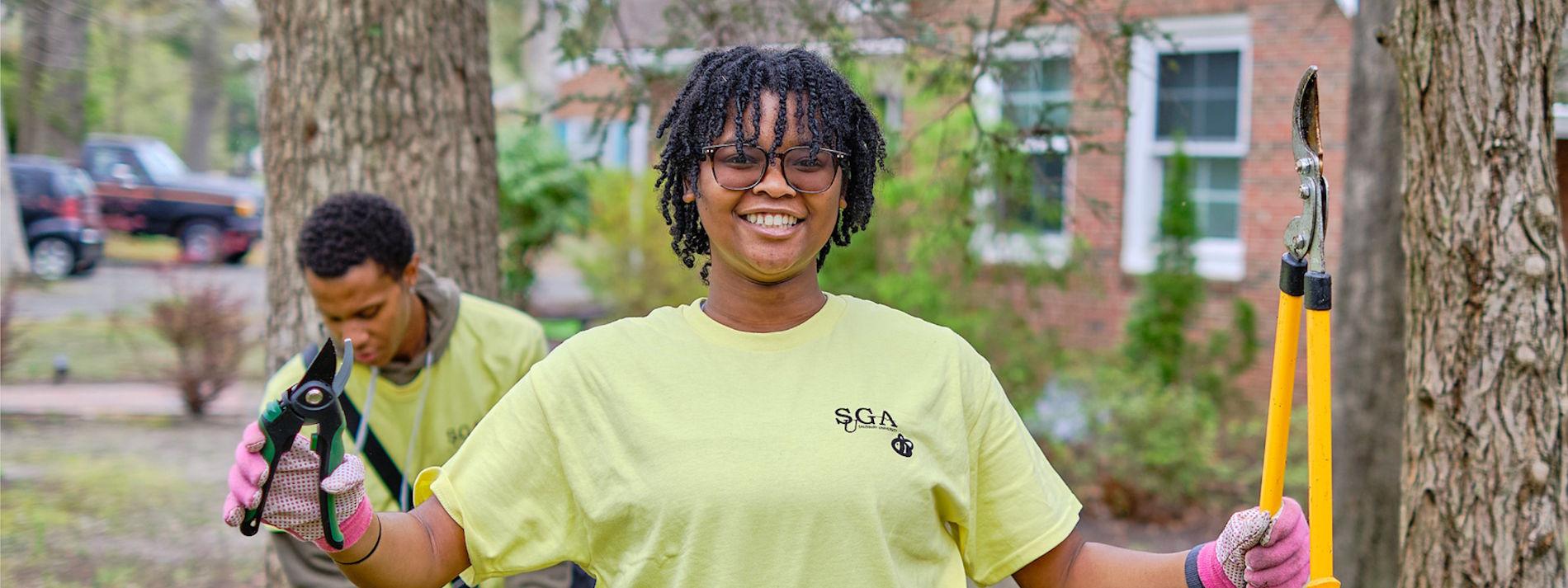
What is a Nature Experience?
There are more ways to engage in “nature experiences” than you might think. For example:
Nature experiences can be:
- Outdoors on campus such as in quiet gardens, lawns, picnic areas, volleyball courts, and bike paths, or off-campus such as at the Salisbury Zoo, Pemberton Park, Nanticoke River Center, or Assateague Island.
- Indoors, such as in campus spaces bathed in natural light, having natural materials such as wood, natural shapes, views of wildlife outdoors, and/or indoor plants, fish, dogs, or other organisms.
Nature experiences can be:
- Direct (authentic) such as measuring actual organisms in biology class or working with your hands in the community garden.
- Indirect (representational) such as when you hang a forest or ocean mural in your room or use a favorite nature image as your digital wallpaper.
Nature experiences can be:
- Small such as studying tiny beetles in a zoology lab.
- Big such as immersing yourself in the vast landscape of Atlantic beach at Assateague Island.
Nature experiences can be:
- Passive such as when you are experiencing nature without even thinking about it, such as walking across campus to class.
- Active such as when you are engaging your senses and actions to observe, smell, touch, hear, and manipulate nature with intention, such as listening for birds, gardening, painting, writing about what you see, using apps like Merlin, iNaturalist, PictureThis, or Nature’s Notebook to help you identify organisms, or collecting observations for science.
Nature experiences can be:
- Solo, such as when you are self-regulating in a quiet garden to reduce stress or restore your attention.
- Social, such as when you are engaging with others in class, clubs, or recreation activities to foster connections with each other and nature.
Your experience of nature can vary in many other ways as well, such as dose, frequency, intensity. In general, humans today are spending less time in nature than our ancestors due to changes in culture, even though nature experiences can improve our mental and physical health.
Let’s work together to use nature experiences to improve our well-being, increase engagement, and contribute to a sustainable future.